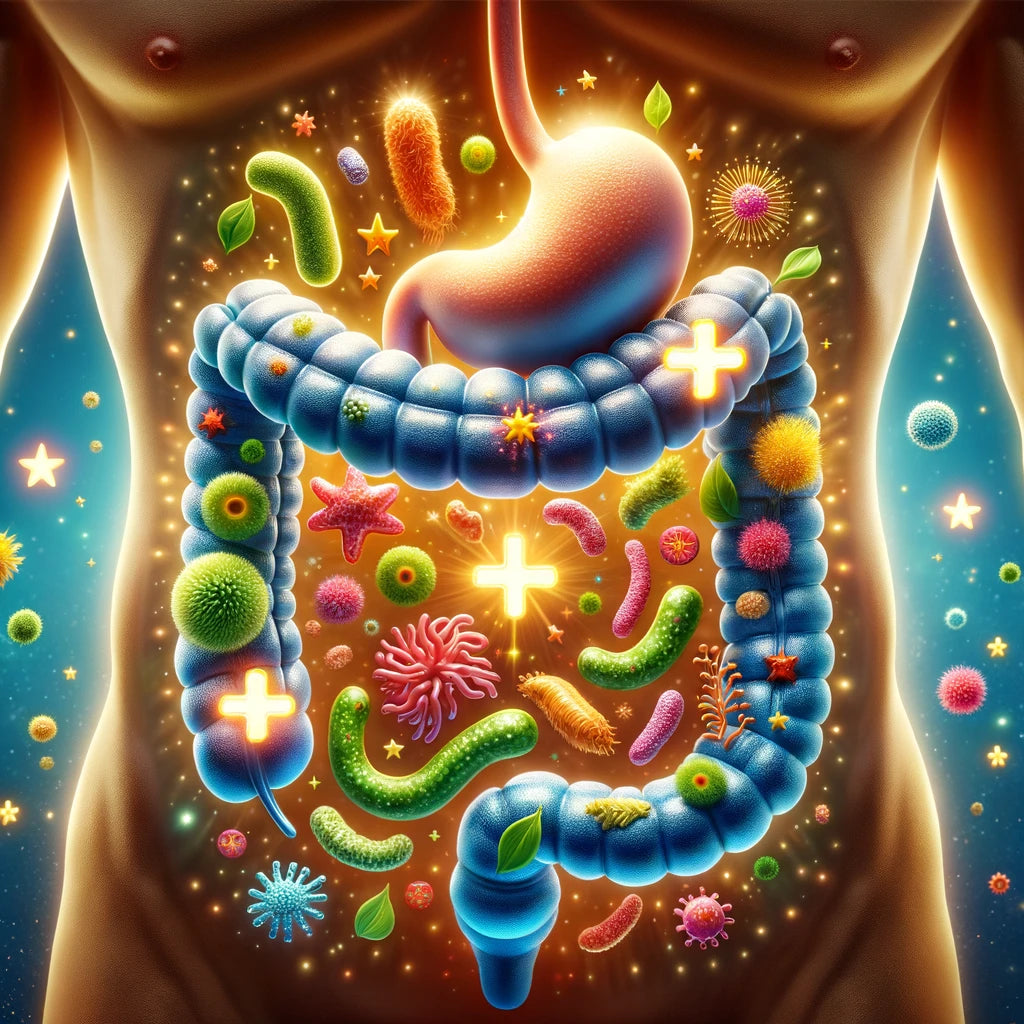
Unlocking Optimal Health and Mentality: The Critical Role of a Healthy Gut Biome
Share
Unlocking Optimal Health and Mentality: The Critical Role of a Healthy Gut Biome
In the intricate ecosystem of the human body, the gut microbiome emerges as a cornerstone of overall health, playing a pivotal role far beyond digestion. This complex community of microorganisms, residing within our gastrointestinal tract, is a powerhouse of nutrient synthesis, amino acid production, and neurotransmitter regulation, profoundly influencing both physical and mental well-being.
The Gut Biome: A Nutrient Powerhouse
The gut microbiome is instrumental in the synthesis of essential nutrients and amino acids, substances that our bodies cannot produce in sufficient quantities. Vitamins such as Vitamin K and certain B vitamins, crucial for blood coagulation, energy production, and DNA synthesis, are produced by our gut bacteria. This symbiotic relationship underscores the importance of a balanced gut flora for nutrient absorption and bioavailability.
Amino acids, the building blocks of proteins, are another critical output of a healthy gut biome. These compounds support muscle growth, repair tissues, and play a key role in immune function. Certain gut bacteria specialize in breaking down dietary fibers into short-chain fatty acids (SCFAs) like butyrate, propionate, and acetate, which serve as vital energy sources for our body cells, particularly colonocytes, and have anti-inflammatory properties.
Beyond Digestion: The Gut-Brain Axis
Perhaps one of the most fascinating aspects of the gut microbiome is its contribution to brain health through the gut-brain axis, a complex communication network linking the gut and the central nervous system. This connection is not merely physical but biochemical, with gut bacteria influencing the production of neurotransmitters, the chemical messengers that govern our emotions, mood, and cognitive functions.
Serotonin, often dubbed the "feel-good" neurotransmitter, is a prime example. An estimated 90% of the body's serotonin is produced in the gut, where certain bacteria play a critical role in its synthesis. This neurotransmitter is pivotal for regulating mood, appetite, and sleep, illustrating the profound impact of gut health on mental well-being.
Cultivating a Healthy Gut Microbiome
The composition of the gut microbiome is influenced by various factors, including diet, lifestyle, and environmental exposures. A diet rich in nutritious, non processed foods can promote healthy and diverse gut flora, fostering the production of beneficial SCFAs and supporting overall health.
Probiotic-rich foods like yogurt, kefir, and organic fermented vegetables introduce beneficial bacteria to the gut, while prebiotic foods provide the necessary fuel to help these microorganisms thrive. Regular physical activity, adequate hydration, and stress management are also key to maintaining a balanced gut microbiome.
Conclusion: A Foundation of Health
The gut microbiome's role in nutrient and amino acid synthesis, coupled with its influence on neurotransmitter production, underscores its central place in our health landscape. By nurturing our gut microbiome through mindful dietary and lifestyle choices, we can unlock the door to optimal health, demonstrating the profound truth in the adage, "health begins in the gut." Embracing this holistic understanding can lead us to not only a healthier gut but a healthier life.
